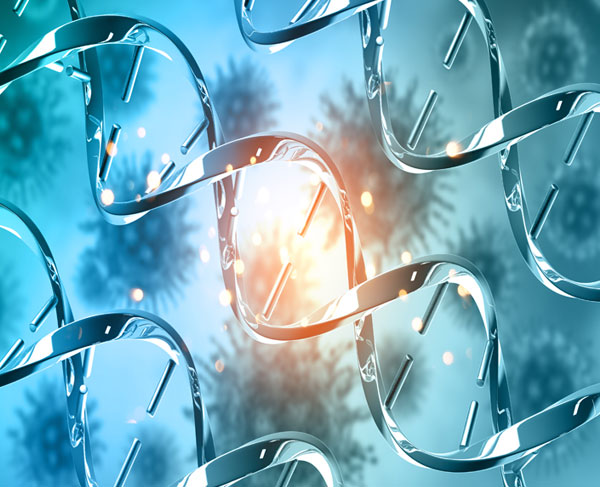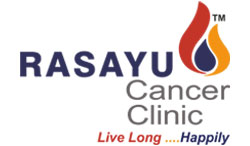Cancer Types
- Bladder Cancer
- Bone Cancer
- Breast Cancer
- Cervical Cancer
- Colorectal Cancer
- Endometrial Cancer
- Head & Neck Cancer
- Kidney Cancer
- Laryngeal Cancer
- Leukaemia
- Liver Cancer
- Lung Cancer
- Multiple Myeloma
- Nasopharyngeal Cancer
- Non-Hodgkin's Lymphoma
- Oesophagus Cancer
- Oral Cancer
- Ovarian Cancer
- Pancreatic Cancer
- Prostate Cancer
- Skin Cancer
- Stomach Cancer
- Testicular Cancer
- Thyroid Cancer
Opening Hours
- Monday - Saturday 10.00 am - 7.00 pm

Bone Cancer
- Bone cancer is an uncommon cancer that begins in a bone. Bone cancer can begin in any bone in the body, but it most commonly affects the long bones that make up the arms and legs.
- The incidence of bone cancer is 1/100 cancer cases but it contributes to about 6-7% of paediatric cancer patients. Among different types of primary bone cancer, Osteosarcoma constitutes the highest proportion (36%) of cases followed by Chondrosarcoma and Ewing’s sarcoma.
- The 5-year survival rate in early diagnosed Bone cancer varies by the type and from case to case. The 5-year survival rate of localised osteosarcoma is 77% and that of advance stage osteosarcoma is 27% as per American Cancer Society statistics.
- Types of Bone Cancer
– Osteosarcoma
– Chondrosarcoma
– Ewing’s sarcoma
– Matrix producing tumors
– Malignant fibrous histocytomas
– Primary bone lymphomas
– Malignant giant cell tumors
Causes
- Exposure to large doses of radiation such as those given during radiation therapy for cancer increases the risk of Bone cancer in the future. The risks of radiation induced sarcoma are much greater in children than adult.
- Bone Infarction chronic osteomyelitis and the presence of metal prostheses have also been linked to bone sarcoma development.
- Bone marrow transplant is occasionally seen as cause to Bone cancer.
Carcinogenic agents with sufficient evidence in humans (ref-IARC) :
- Plutonium.
- Radium-224 and its decay product.
- Radium-226 and its decay products.
- Radium-228 and its decay products.
- X-radiation, gamma-radiation.
Agents with limited evidence in humans (as per IARC)
- Radioiodines including Iodine 131.
- Paget’s disease of bone – Most commonly occurring in older adults, Paget’s disease of bone can increase the risk of Bone cancer developing later. Osteosarcoma mostly occurs due to complication of Paget’s disease
- Rothmund – Thompson syndrome and Li-Fraumeni syndrome are also seen to be probable cause to Bone cancer at a later stage
- Multiple Osteochondromas.
- Genetic- The exact cause of bone s is unknown but there is evidence to suggest that it may be due to genetic mutation.The accumulating mutated cells form a mass that can invade nearby structures or spread to other areas of the body.
- Inherited genetic syndromes– Certain rare genetic syndromes passed through families increase the risk of Bone cancer, such as Li-Fraumeni syndrome and hereditary retinoblastoma.
Signs & Symptoms
- Bone pain – Pain usually precedes swelling and is typically worse at night.
- Swelling and tenderness near the affected area.
- Bone fractures.
- Fatigue.
- Weight loss, fever, anaemia- are other commonly found symptoms etc.
Investigation / Screening
- X-ray – In most cases the investigations begin with plain X-rays of the affected bone.
- Bone scan / Computerized tomography (CT) / Magnetic resonance imaging (MRI) / Positron emission tomography (PET) – The exact extent of the lesion and the presence of vascular or neurological invasion must be clarified by scanning.
- Biopsy – For definitive diagnosis doctor advised a procedure to remove a sample of tissue (biopsy) for laboratory testing. An excision biopsy may appropriate for small easily accessible and benign looking lesions but in most cases a core needle biopsy is performed. Incisional biopsies run the risk of spreading cells within the field of the incision and are avoided if possible.
- Histopathology – Conventional histopathological techniques using light microscopy and cytogenetics may occasionally be needed. An isotope bone scan is performed for search of skip lesions within the affected bone and distant bone metastasis.
Treatment
- To plan personalised treatment for each individual patient as every individual is different even if they have the same type of cancer.
- To improve health related quality of life (QOL) in all types and stages of cancer patients.
- To plan for partial or total regression of tumour depending on the nature of tumors.
- To increase overall survival (OS) of patients.
- To increase disease free survival (DFS) where complete resection of tumour is achieved.
- To provide a treatment option to patients who are refractory to conventional treatments like chemotherapy / radiotherapy / immunotherapy etc.
- To reduce the rate of growth of the tumor in recurrent and advanced staged cases.
- To increase progression free survival in advance cases.
- To reduce impact of symptoms related to progression of disease.
- To improve confidence of patients.
- To provide palliative support in end-of- life cancer cases.
- To add happiness and extension of life to cancer patients.
- To compliment other therapies like chemotherapy, radiotherapy in a synergistic way.
- To reduce severity or adverse effects of other conventional treatment. This reduces incidence and frequency of hospitalization.
- It is pertinent to note that Rasayu Cancer Clinic does not claim or blame anything while communicating any aspect to cancer patients.
- Rasayu Cancer Clinic focuses on Ayurveda fundamental based therapies.
- Rasayu Cancer Clinic believes in continuous improvement in service and science.
- Rasayu Cancer Clinic always advocates patient centric approach which leads to long and happy life of cancer patients.
- Every patient has a right to choose the therapy.
- Rasayu Cancer Clinic never imposes Rasayana therapy on patients but helps them to take the right decision, hence making patients/ relatives well aware about the disease and possible outcomes along with its risk benefit and cost benefit ratios.
- Rasayu Cancer Clinic is well connected with global updates in cancer care and therapies, through advisors and collaborations with national and international institutes.
The treatment options for Bone cancer are based on the type of cancer, the stage of the cancer and overall health. Most patients may require treatment involving a combination of surgery, radiotherapy and /or chemotherapy and Rasayana Therapy.
Surgery
Surgery may be the first therapeutic procedure undertaken or it may be preceded by chemotherapy in an effort to reduce the size of the growth.
Types of surgery used to treat Bone cancer include :
- Surgery to remove the cancer but spare the limb – If a Bone cancer can be separated from nerves and other tissue the surgeon may be able to remove the Bone cancer and spare the limb. The principles of limb – sparing sarcoma surgery are now well established.
- Surgery for cancer that does not affect the limbs- If Bone cancer occurs in bones other than those of the arms and legs, surgeons may remove the bone and some surrounding tissue. Unfortunately, many bones arise near joints which may need to be excised and replaced by artificial ones.
- Surgery to remove a limb – Most of the time bones may require surgery to remove all or part of a limb (amputation) and be replaced by artificial limb (prosthesis).
Chemotherapy
- Chemotherapy can be used to treat Bone cancers. Various regimens are available according to types of bone s. VIDE-Regimen (Vincristine, Ifosfamide, Doxorubicin, Etoposide) can be used for Ewing’s sarcoma. Cisplatin, doxorubicin, methotreaxate are commonly used to treat osteosarcoma and spindle cell sarcomas.
- Side effects of Chemotherapy – Click Here
- Adverse drug reactions (ADRs) of Chemotherapy – Click Here
Radiotherapy
- Radiotherapy is used to treat unresectable or to reduce the risk of recurrence postoperatively in certain circumstances. Most patients will experience acute radiation skin reactions. Long term abnormalities of growth and limb function are seen in younger patients if growth in the irradiated limb is not complete.
- Know more about Radiotherapy side effects – Click Here
Immunotherapy
- Efficacy of the treatment is still not clear as per the National Library of Medicine, since there is a need for improved biomarkers.
- Cost of this treatment is high and many times does not fit into cost benefit ratio.
- Side Effects – Click Here
- Risk and Benefits of Immunotherapy – Click Here
- Side Effects of Immunotherapy – Click Here
Rasayu Cancer Clinic Rasayan Treatment Protocol – To know more please click here
Rasayu therapy is recommended for those :
- Who voluntarily opted for this treatment as their first choice.
- Who are disenchanted with the past treatments.
- Who do not see any other options of treatments.
- Who are looking for personalized treatment plan.
- Who desire a convenient home-based oral therapy which is easy for consumption.
- Who are susceptible to acquire hospital borne infections/ complications, hence not willing to be hospitalised.
- Who are looking for favourable risk benefit ratio.
- Who desire to improve Quality of Life benchmarks based on global standards and monitored regularly.
- Who wants to be involved in decision making for choice of treatment.
- Who are willing to be involved in monitoring the efficacy of Rasayana Therapy.
- Who believe in the transparency of the process by conducting regular investigations by biochemical parameters/ hi tech imaging techniques like PET scan etc.
- Who are looking for professionals being sensitive to the patient, the care givers and the family.
- Who desire to take even with other treatments including Chemotherapy / Radiotherapy.
Disclaimer : This Website contains certain links such as You Tube links, research paper links / website links / audio visuals/ internet information already available in public domain. The information contained in the audio visuals is meant for use by qualified Medical Professionals. The content of the links etc has been made available for informational and educational purposes only. Rasayu Cancer Clinic and its associates do not make any warranties with respect to the accuracy, applicability, fitness, or the completeness of the content of such links etc. The information contained in such links represents the views and opinions of the original creator of such links and are not views endorsed by the Rasayu fraternity.



